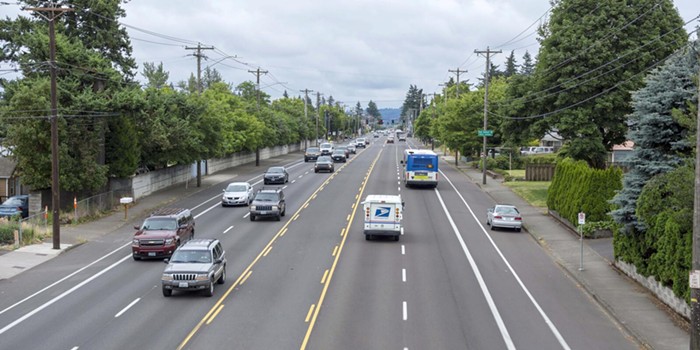IN LATE APRIL, Portland City Council ended months of discussions with a somewhat surprising unanimous vote in favor of a resolution to rejoin (a characterization that some will quibble with) the FBI's Portland-area Joint Terrorism Task Force (JTTF).
We were reassured that everything would be okay because the FBI and the US Department of Justice understood Portland was special and that our cops would be able to beg out of work that violated Oregon's unique protections against political, ethnic, and religious profiling.
That promise—central to a compromise that won support from the feds but also the American Civil Liberties Union (ACLU) of Oregon—still holds. But even now, two months after the city council approved its warm-and-fuzzy resolution, the mechanism for enforcing it, sources say, remains as murky as ever.
That's because the set of rules guiding that relationship—the "standard operating procedure," or SOP, in acronym-heavy police parlance—is still not final.
Mayor Sam Adams and Police Chief Mike Reese are still parsing through drafts of the policy. Moreover, Adams' office says, because lawyers are still having their way with the drafts, they aren't even considered public records yet.
This may seem like a trifling issue, after all the high-wire consternation this spring over the precise wording of the city's resolution. It's not.
Because although it was important to get the resolution right—it articulates that Portland cops will only work on cases where there's a "criminal nexus" and without using investigative techniques that violate Oregon laws—you should think of the SOP as the fine print.
In it, you'll find all the caveats about what officers can do with the FBI, and when and how. Also, it will make clear how officers should complain if and when they feel like they're being asked to do something hinky. Without robust rules and whistle-blowing protections, and without requirements for detailing our cops' efforts as transparently as possible, Portland's deal with the feds will lack teeth.
The SOP became especially vital after the New York Times reported that the FBI is poised to allow even more ethically dubious investigative techniques—making the Obama FBI far more troubling than the Bush FBI ever was. Infiltrating peace groups without any suspicion of a crime is already okay, for example, but under the changes, agents could do so more freely and also paw through trashcans.
During the vote on the JTTF, when reminded that police rules would also need to be strong, City Commissioner Randy Leonard said he would "personally see to that." He also then joked that that was the mayor's job, as police commissioner.
It is. And so now we'll wait and see.


















